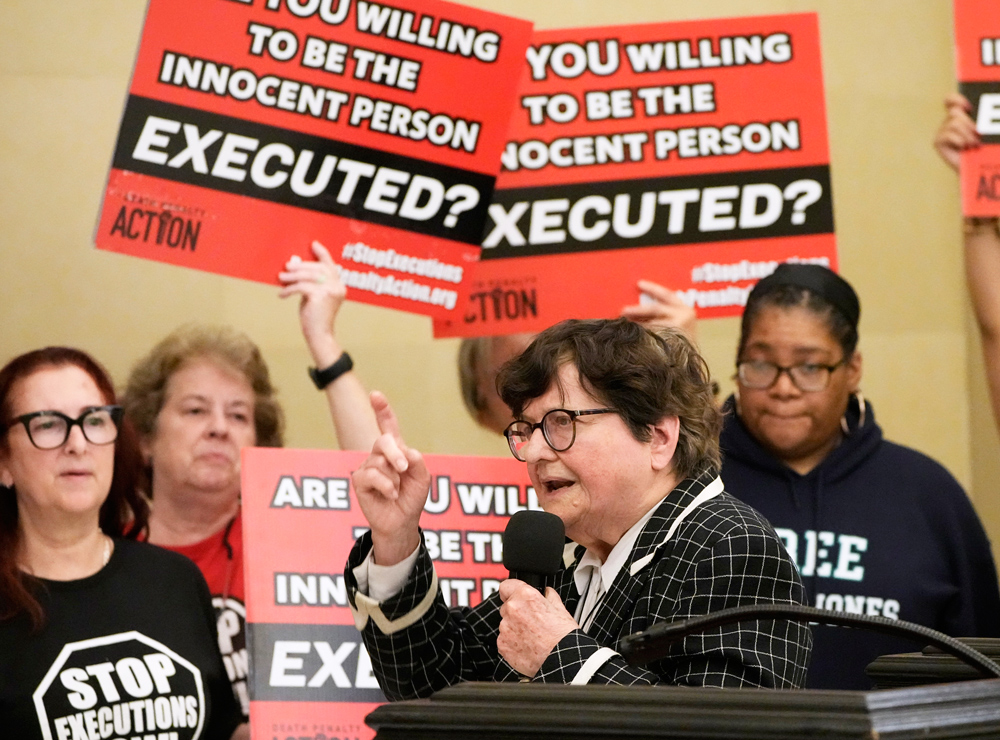The U.S. Supreme Court ruled May 5 to block the state of Oklahoma from executing death row inmate Richard Glossip. The execution had been scheduled for May 18 after the state’s Pardon and Parole Board voted 2-2 on his appeal for clemency April 26.
The high court put the execution on hold while it decides whether to hear Glossip’s appeal.
The justices gave significant weight to an unprecedented appeal on Glossip’s behalf by Oklahoma’s new attorney general, Gentner Drummond. “I believe it would be a grave injustice to allow the execution of a man whose trial was plagued by many errors,” Drummond had told the clemency board.
“I’m not a murderer and I don’t deserve to die for this,” Glossip told the board.
Part of the appeal by Glossip’s attorneys will be challenging the tie vote of the five-person parole board that determined Glossip’s fate. One board member recused himself because his wife was a prosecutor in the case.
Glossip, now 60, has had nine separate execution dates and eaten three last meals during his 26 years in prison. In 2015 he was hours away from the death chamber when prison officials realized they had the wrong drugs.
In 1997 Glossip was the manager of Best Budget Inn in Oklahoma City. Justin Sneed, a maintenance worker there with a criminal record and addicted to methamphetamine, beat motel owner Barry Van Treese to death with a baseball bat and stole cash from Van Treese’s car. Sneed had previously beaten and robbed motel guests.
Sneed told police Van Treese’s death was a “botched robbery.” But detectives led him to say he had been scapegoated and suggested several times that Glossip had paid Sneed to kill Van Treese.
Glossip was convicted and sentenced to death but the trial was so egregiously flawed that a second trial was ordered in 2004. There is no physical evidence tying Glossip to the killing.
Sneed was given a life sentence. Fellow prisoners have testified Sneed bragged about framing Glossip. Prisoner Paul Melton said Sneed told him one detective said, “This is the only way you’re going to live, buddy.” In a letter to his attorney from prison Sneed asked, “Do I have the choice of recanting my testimony at any time during my life?”
Calls for a new hearing
Sixty-two state legislators have called for a new hearing. Republican State Representative Kevin McDugle said, “Oklahomans — including both those who support and oppose the death penalty — will not tolerate Mr. Glossip being executed while there is so much proof that the police and district attorney lost and destroyed important evidence, wrongfully altered critical testimony, and continue to purposely hide evidence to this day.” McDugle said he would “fight to end the death penalty” if Glossip is executed.
Especially infuriating to authorities supporting Glossip’s execution is that along with other Oklahoma death row inmates, he filed a lawsuit in 2014 challenging the three-drug “cocktail” used there, saying it violates the Eighth Amendment to the Constitution, barring cruel and unusual punishment.
In 2015 the U.S. Supreme Court ruled in a 5-4 decision that the prisoners had failed to prove the drugs would cause a level of pain that violates the Constitution. The court said it was up to the prisoners to propose an alternative for their own executions.
On July 1, 2022, the Oklahoma Court of Criminal Appeals set a schedule to put to death 25 of the state’s 43 death-row prisoners before the end of 2024. This includes “prisoners with severe mental illness, brain damage, and claims of innocence,” the Death Penalty Information Center protested. This past January, Attorney General Drummond slowed that schedule down to one every 60 days.
In an interview earlier this year, Glossip told CNN how he feels as each execution date gets closer. “It’s still scary, it will always be scary until they finally open this door and let me go, or remove this from over my head completely.”


